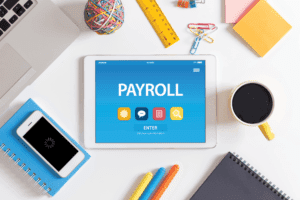
Eno launched in 2017 and was the first natural language SMS text-based assistant offered by a US bank. Eno generates insights and anticipates customer needs throughover 12 proactive capabilities, such as alerting customers about suspected fraud or price hikes in subscription services. There’s no getting around the fact that AI is here, whether you like it or not. Don’t turn a blind eye to this technology and hope that it won’t affect your business.
- At the same time, while this technology offers immense potential, its successful integration in this highly regulated field demands informed decision-making.
- These younger consumers prefer digital banking channels, with a massive 78% of millennials never going to a branch if they can help it.
- But instead of fearing these advancements, CPAs should embrace them and find ways to augment their skills rather than replace them.
- Accountancy involves repetitive, detail-oriented, and often tedious tasks.
- Hyper automation is an approach to digitalization that uses technologies such as ML and AI to automate complex tasks that need human judgment, such as the analysis of financial statements.
Adtalem Global Education is not responsible for the security, contents and accuracy of any information provided on the third-party website. Note that the website may still be a third-party website even the format is similar to the Becker.com benefits of ai in accounting website. However, it’s important to note that AI is not a replacement for human expertise and judgment. This can significantly streamline the audit process, reducing the time and resources required to complete the audit.
Search for qualified ACA jobs
Generative AI can create all kinds of creative and useful content, such as scripts, social media posts, blog articles, design assets, and more. Tools like chatbots, callbots, and AI-powered assistants are transforming customer service interactions, offering new and streamlined ways for businesses to interact with customers. Not only can this help you catch harmless data entry errors, but it can also alert you to security threats.

We explain how to use artificial intelligence in accounts payable in more detail in another guide. Machine learning algorithms play a crucial role in financial analysis by extracting insights from huge amounts of financial data, and offering more accurate predictions. These algorithms can identify patterns, trends, and relationships within the data, enabling accountants to gain deeper insights into market trends, investment opportunities, risk assessment, and portfolio management. The influence of artificial intelligence (AI) on the financial services industry has been remarkable in recent years. Indeed, the previous year ushered in an unprecedented wave of advanced generative AI products, paving the way for substantial productivity improvements in banking institutions. AI technology unquestionably leaves an indelible mark by enhancing efficiency, reducing human error and offering an unrivaled ability to process and analyze vast quantities of data in a timely and accurate manner.
Legal Liability
Whether chatbots writing letters to clients or AI-powered software uncovering supposed misdeeds by employees, for a very long time to come, humans will remain in the loop to provide oversight and avoid embarrassing or litigious situations. In more than a century of the assembly line, factories may now use increasingly sophisticated robots, but they still don’t make cars without humans. Recognizing this new AI era, the American Institute of CPAs announced a series of initiatives to help members become educated about generative AI and best manage its use. By using AI-driven solutions, organizations can proactively identify and address potential threats. They know that their transactions are being watched over for any signs of fraud. AI can assist your company with research related to taxation, accounting standards, global regulations, and economic, industry, and business research.
Historically, accountants have been tasked with recording, classifying, and summarizing financial transactions, ensuring compliance with accounting standards, and providing insights to businesses. However, the advent of AI is disrupting this traditional landscape, challenging accountants to adapt and evolve. The integration of AI is reshaping the traditional role of accountants, challenging them to explore new horizons and contribute to the evolving needs of modern practices. It doesn’t just save time and money, it also ensures that the correct entries are made.
Fast, Useful Reports
It is necessary for your organization to have a clear understanding of the reasoning and decisions of AI accounting tools. Beyond this, you should also invest in a mechanism that ensures a trial of the system before you deploy it. The truth is that while AI-enabled accounting tools present us with amazing benefits, they also come with risks. It is imperative that you understand such risks and adopt measures to manage them effectively. Amita Jain is a senior writer for Capterra, covering finance technology with a focus on expense management and accounting solutions for small-to-midsize businesses.
- Many accounting software platforms use AI to streamline tedious accounting tasks like data entry and bank statement reconciliation.
- When you define AI accounting, you may be thinking about using ChatGPT in accounting or ChatGPT in finance.
- Tools integrated with AI and ML capabilities are being used to automate repetitive tasks such as processing invoices, capturing data from PDFs, and making payments.
- However, these tasks can be time-consuming and prone to errors, which can result in delayed payments, inaccurate financial reporting, and, ultimately, negative impacts on the company’s bottom line.
- Look no further than the recent story about the New York lawyer who filed a brief in a federal lawsuit that relied on citations and quotes sourced by ChatGPT, facts that quickly proved fictitious.
This is why AI-powered predictive analytics is enabling accountants and finance professionals to move from the time-consuming (and often monotonous) role of generating the reports themselves and into the role of evaluator. Forward-thinking financial leaders are shifting the tides by using AI to analyze enormous quantities of financial data at speed and scale, providing real-time insights into a business’ financial health. This article will cover the most important topics about AI in accounting—from its current and future role in the financial space and your workflows, to key AI trends in 2023 and the tools that will help you meet your goals.